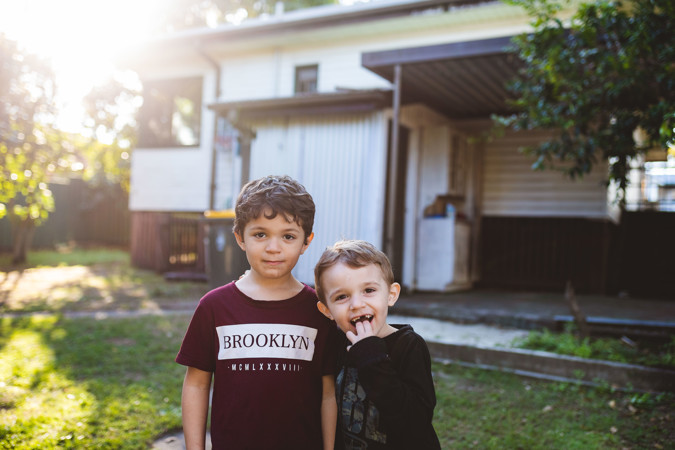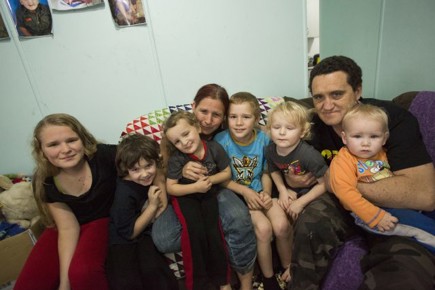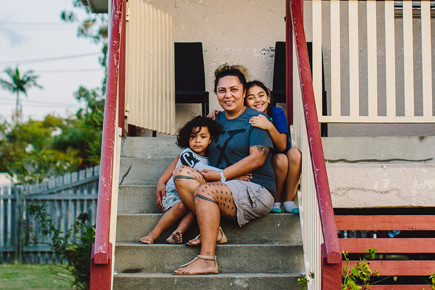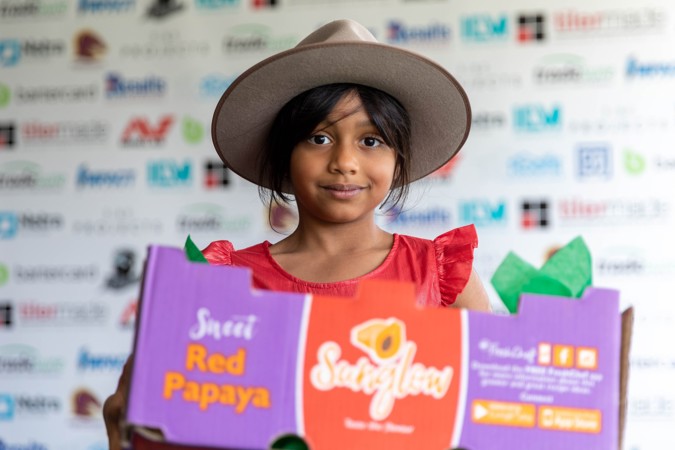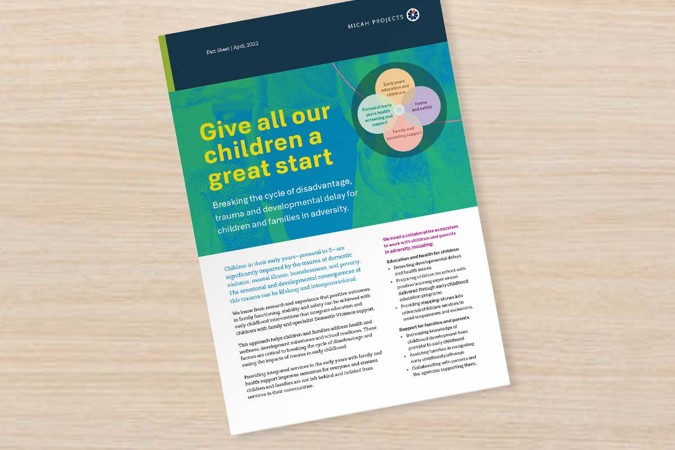Every day, we meet vulnerable mothers, children and families experiencing hardship.
Many are unable to secure affordable housing, as rentals and the cost of living sky-rocket. Some are fleeing from domestic violence, a heartbreaking reality that often leads to family homelessness. Almost all tell of the deep sense of helplessness and fear they feel as they face the unimaginable.
If this is you, we see you and we hear you. You are not alone. We are here to help.
Our dedicated families team will work with you to resolve your crisis as soon as possible and link you with ongoing support so you can get back to building the family life you dreamed of.
Call our Home for Good Hub
Are you ..
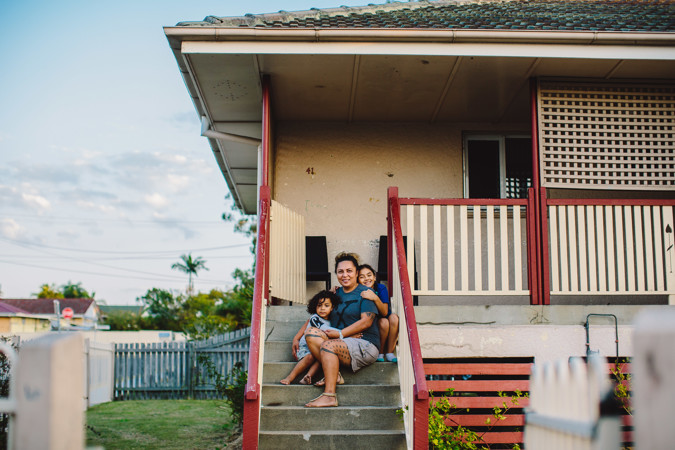
Part of a family facing eviction or housing crisis?
Families Homestay provides early intervention support to prevent family homelessness.
Experiencing violence and abuse?
Our Brisbane Domestic and Family Violence Service (BDVS) offers free, confidential support — 24/7. For emergencies, call 000.
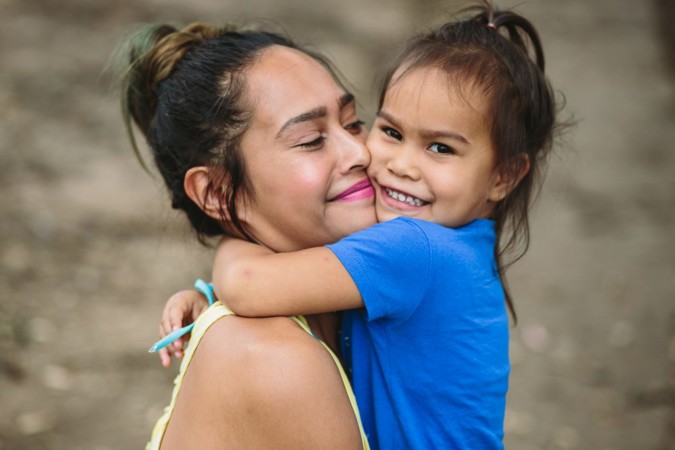
A young parent facing adversity?
Our Wellspring Services provide wrap-around support, such as antenatal services, parental support, early childhood education, and occasional childcare.
Micah Projects working with Women Children and Families

Domestic and family violence (DFV) is the leading reason women and children leave their home.

Thriving families means a thriving community
We understand the profound impact of a positive family life on the course of an individual's life.
For over two decades, Micah Projects has been supporting and empowering vulnerable families in Brisbane to develop the conditions required to thrive.
Safety, a stable home, access to healthcare, early childhood education and parental care to nurture each child's unique potential, memories to be treasured for a lifetime — these are the ingredients that shape lives for the better.
By empowering families to give children the best start to life, we can begin to dismantle intergenerational cycles of disadvantage, inequity and hardship.
In 2024-25...
Key figures

576
women, children and young fathers supported through Young Mothers Young Women

151
pregnant women and their families supported
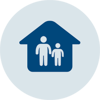
132
children and young people supported
911 children experienced homelessness in Brisbane between 2019-2022.
Almost 40% were under the age of 4.


More on Women, Children and Families


